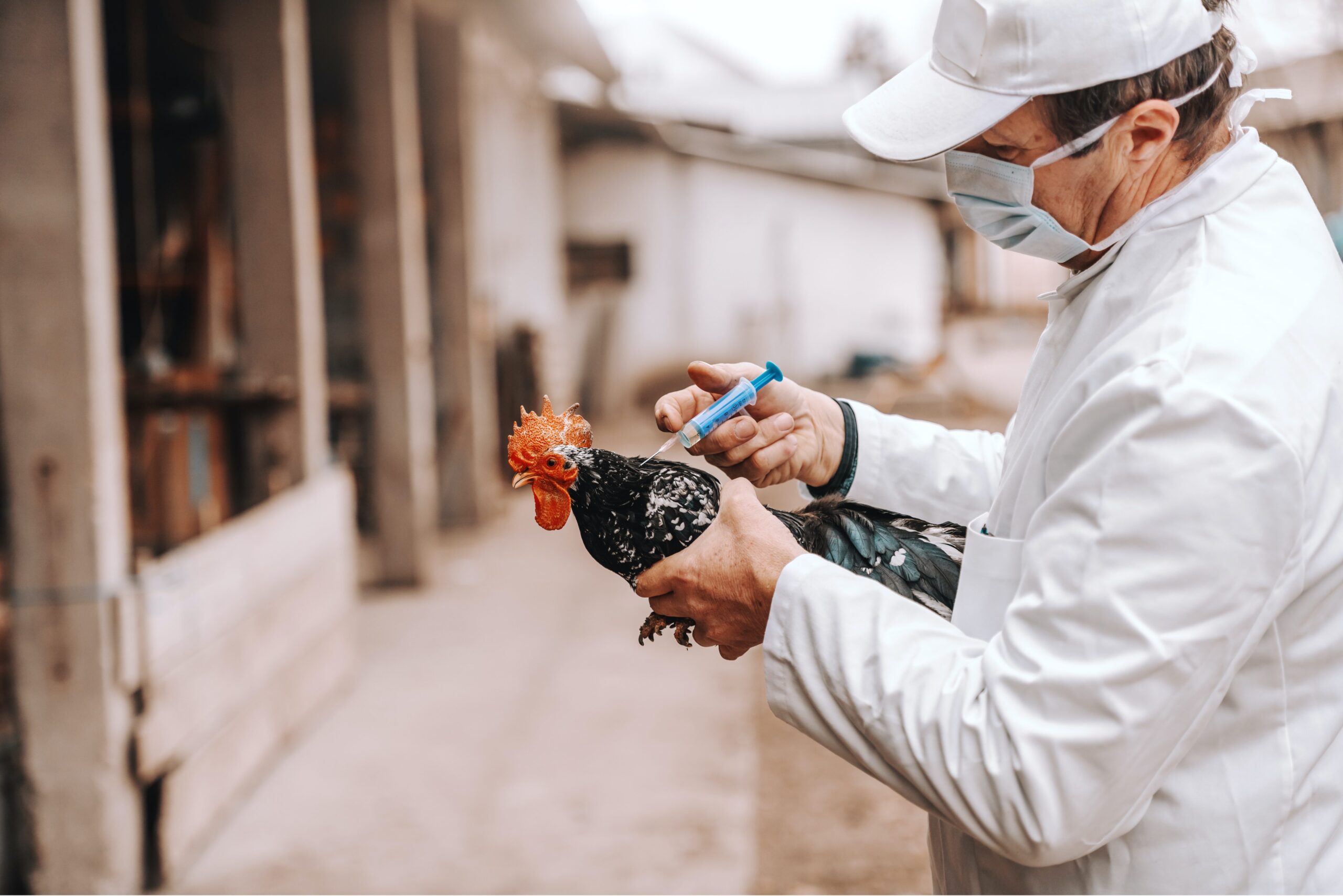Novel antimicrobial agent shows potential to treat avian colibacillosis
An international team of researchers led by the University of Surrey has investigated the effectiveness of a metal-derived complex in treating avian pathogenic Escherichia coli (APEC), the cause of avian colibacillosis. Their findings are reported in Veterinary Microbiology.
Avian colibacillosis is a serious respiratory and systemic disease of poultry, resulting in animal welfare issues and financial losses worldwide. Although vaccines exist, there is concern regarding new and emerging pathotypes and antimicrobial resistance (AMR).
To test the effectiveness of the metal complex, manganese carbonyl, researchers worked with greater wax moth (Galleria mellonella) larvae inoculated with APEC. One group received manganese carbonyl, whilst the controls received either a phosphate-buffered saline (PBS) or dimethyl sulfoxide (DMSO). After four days, the survival rate for the larvae which received manganese carbonyl was between 56% and 75%, whereas in the control group, the survival rate was 25-45% (PBS) and 19-45% (DMSO), demonstrating the protective effect of the complex.
The test was repeated in chicks infected with APEC, who received either manganese carbonyl or PBS. Bacterial shedding identified in the faeces of the chicks was significantly lower 24 hours post-treatment in those who received manganese carbonyl compared to the PBS control group, indicating bacterial killing induced by the compound. Caecal samples taken three days post-treatment found significantly fewer bacteria in those that received manganese carbonyl. Examination of tissue samples from the livers of the birds indicated no toxic effects from the metal compound, which was observed in the larvae.
The researchers say that further investigations should be undertaken with such metal complexes, to assess their efficacy and long-term safety.
Dr Jonathan Betts, a Research Fellow at the University of Surrey School of Veterinary Medicine, said, “The development of alternatives to antibiotics is vital to safeguard our future health. Metal complexes such as manganese carbonyl could do this, as we have shown not only are they effective, but they are much cheaper to produce than traditional antibiotics.”
The team included researchers from the University of Surrey, the Animal and Plant Health Agency, the University of Connecticut, the University of Sheffield and Institut für Anorganische Chemie, Julius-Maximilians-Universität Würzburg.
Article: Betts, J. W., Cawthraw, S., Smyth, J. A., Poole, R. K., Roth, P., Schatzschneider, U., La Ragione, R. M., 2023. The manganese carbonyl complex [Mn(CO)3(tqa-κ3N)]Br: A novel antimicrobial agent with the potential to treat avian pathogenic Escherichia coli (APEC) infections. Veterinary Microbiology, 284, 109819, doi: 10.1016/j.vetmic.2023.109819
SOURCE: [University of Surrey]
Help build the STAR IDAZ community.
Share reports and updates on social channels.

